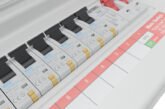
We catch up with the team at Prefect Controls to learn more about how a student accommodation development in Leeds managed to cut its energy load in half thanks to the use of heating controls.
The Refinery is a purpose-built student accommodation development in Leeds. Opened in 2021, it consists of a combination of studio and bedroom cluster flats that can accommodate 407 residents.
Fresh Student Living manages the scheme on behalf of specialist investment company Curlew Capital. Kristian Mills, Director of Asset Management at Curlew Capital is responsible for the mobilisation of properties and ensuring they are operated effectively.
He explains: “Over the first two years of operation we found that we were spending more on utilities than we’d expected for a property of this size. Students were able to override the programming on the heaters, turning them up to maximum and leaving them running continuously.
“To exacerbate the high use of electricity, windows would be opened and closed to regulate temperature. We were witnessing huge wastage, which was costly in monetary terms, but as a company fully committed to its 2030 net zero targets we needed to seriously consider this impact. One of the big things we identified, within our capability, is the control of energy for heating”.
Kristian sought to reduce this, stating: “There were several solutions where sensors are placed in the bedrooms which can provide information on humidity, CO2, light etc. and had PIRs so you could monitor occupancy. But there weren’t many that controlled what was going on in individual rooms.
“I’ve been in student accommodation for 20 years and have come across many heater panels with boosted control functions. However, I’d never encountered anything where you can centrally control the heating system.”
The Prefect solution
Kristian turned to Prefect Controls, with the company confident that Irus could sort the problem and return results promptly.
Irus is a Building Energy Management System developed for student accommodation. Control units in each room monitor conditions, and switch heaters on/off, with the control units communicating with a central hub connected to the web-based Irus Portal. Managers can then monitor and control individual rooms remotely.
Irus doesn’t restrict heating. It avoids unnecessary energy consumption, reducing heat input when rooms are unoccupied, windows are opened, and when occupants leave a room that’s in ‘Boost’ state.
“There were three distinct factors that decided the deployment of Irus”, Kristian adds, “1. the availability of data on bedroom usage; 2. lowering of energy costs; and 3. reduction of our carbon footprint.”
The first year’s results are impressive:
• Heating energy halved – 598,892kWh to 301,910kWh
• Total electricity – 816,064kWh down to 575,420kWh
• Proportion of electricity for heating – 73% down to 52%
• 50% reduction per bedroom (1,464kwh to 738kWh)
• Almost £70,000 saved
Kristian is also clear about residents’ comfort, explaining: “It’s important to emphasise there’s no restriction in the provision of heating for guests. If residents need more warmth, managers can increase temperature, and lengthen boost times etc. But to run an efficient property and avoid waste, we must be able to monitor energy input and control delivery.”
He continues: “In future, we want to make Irus the standard specification for each property. We don’t want to have to retrofit heating systems. Instead we want to make sure that the best possible system is installed, and one that provides information and control.
He concludes: “To see a 50% reduction in heating load and close to £70,000 saved is phenomenal! We anticipate a ROI of just over three years.”
Visit the Prefect Irus product information page here
Find more industry feature articles here












